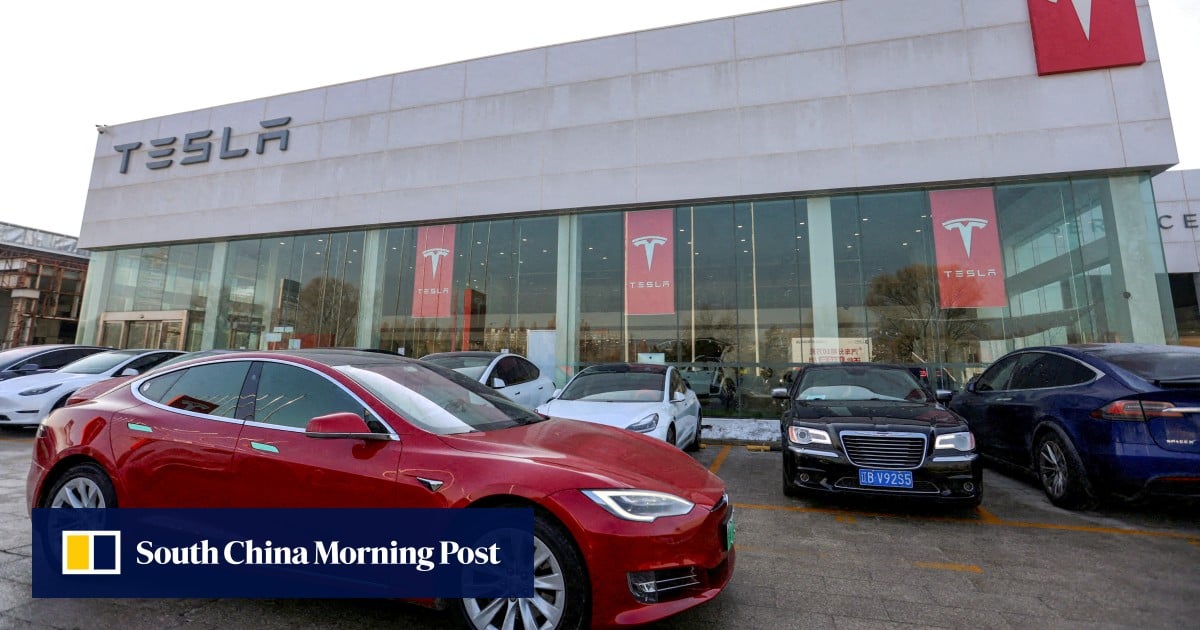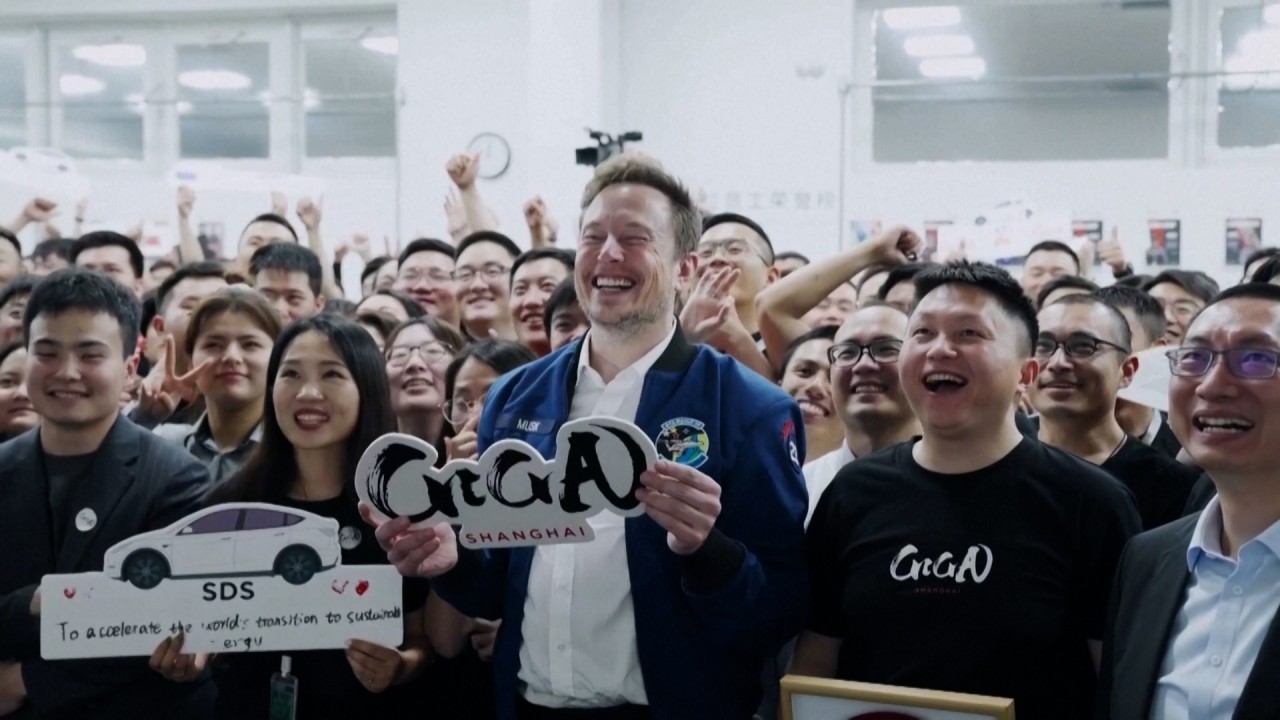
08 Mar Tesla fails to keep up with China’s fast-growing EV sector amid escalating price war, posts declining February sales
The US carmaker’s Gigafactory in Shanghai handed over 30,141 Model 3s and Model Ys to mainland customers last month, a year-on-year decline of 24.4 per cent, according to data released by the China Passenger Car Association on Friday. In contrast, Tesla delivered 39,881 units in January, a year-on-year increase of 48.6 per cent.
Altogether, Tesla has delivered 70,022 units in the first two months of 2024, a year-on-year increase of 15.2 per cent.
But it has largely been eclipsed by year-on-year growth of 37 per cent achieved by the mainland EV sector as a whole. EV assemblers sold a total of 1.06 million units in China between January and February, compared to 770,610 cars in the same period last year.
“Price competition has increased pressure on Tesla and other leading players in a cutthroat market,” said Eric Han, a senior manager at Suolei, an advisory firm in Shanghai. “Lacklustre deliveries in the first two months show that even market leaders like Tesla will have to offer discounts to sustain sales growth.”
China EV war: BYD, Xpeng up the ante as they slash prices to arrest sales slump
China EV war: BYD, Xpeng up the ante as they slash prices to arrest sales slump
On Wednesday, the Shenzhen-based company, which is backed by Warren Buffett’s Berkshire Hathaway, launched the basic version of the revamped Seagull at 69,800 yuan (US$9,707), a price 5.4 per cent lower than the previous model.
Several carmakers, including a General Motors joint venture, have followed suit by sharply marking down the prices of their vehicles over the past two weeks, escalating a price war that could accelerate the transition to EVs in China.
Tesla said last Friday that it would grant a subsidy of 8,000 yuan to buyers who got their cars insured from its partners. The subsidy is valid until the end of March.
The Shanghai Gigafactory shipped 30,224 vehicles abroad in February, a 25.3 per cent year-on-year increase. The plant, Tesla’s first beachhead outside the United States, churned out 60,365 vehicles last month, its lowest level since January 2023.
The Shanghai facility also exported 344,078 Model 3s and Model Ys to markets such as Germany and Japan last year, a rise of 26.9 per cent year on year. Total production volume of 947,742 units at the plant accounted for more than half of Tesla’s total output worldwide in 2023.
Currently, Tesla is the front-runner in China’s premium EV segment, with 603,664 deliveries to mainland customers last year, an increase of 37.3 per cent over 2022. The number represents a third of the US carmaker’s global total, which topped 1.82 million units last year, a 37 per cent year-on-year rise.
Chinese EV maker Leapmotor lures price-conscious buyers with deep discounts
Chinese EV maker Leapmotor lures price-conscious buyers with deep discounts
China, where EV sales account for about 60 per cent of the global total, is Tesla’s second-largest market, trailing only the US.
Aito delivered 21,142 vehicles in February, beating all other Chinese home-grown premium EV makers. It was the second consecutive month that Aito topped its domestic peers.
Chinese EV makers Li Auto, Xpeng, Nio post sales declines for second month
Chinese EV makers Li Auto, Xpeng, Nio post sales declines for second month
Tesla initiated a price war on the mainland with a price cut in late October 2022, which was followed by another round of heavy cuts in early January the following year, prompting dozens of carmakers – including petrol car assemblers and EV manufacturers – to slash prices so as to retain their market shares.
The tactic proved to be successful, driving up sales by 76 per cent to 12,654 cars in the week of January 9 to January 15 last year, compared with the previous seven days.
But the price competition failed to effectively spur sales on the mainland as customers refrained from buying EVs on expectations that further discounts would be offered.

